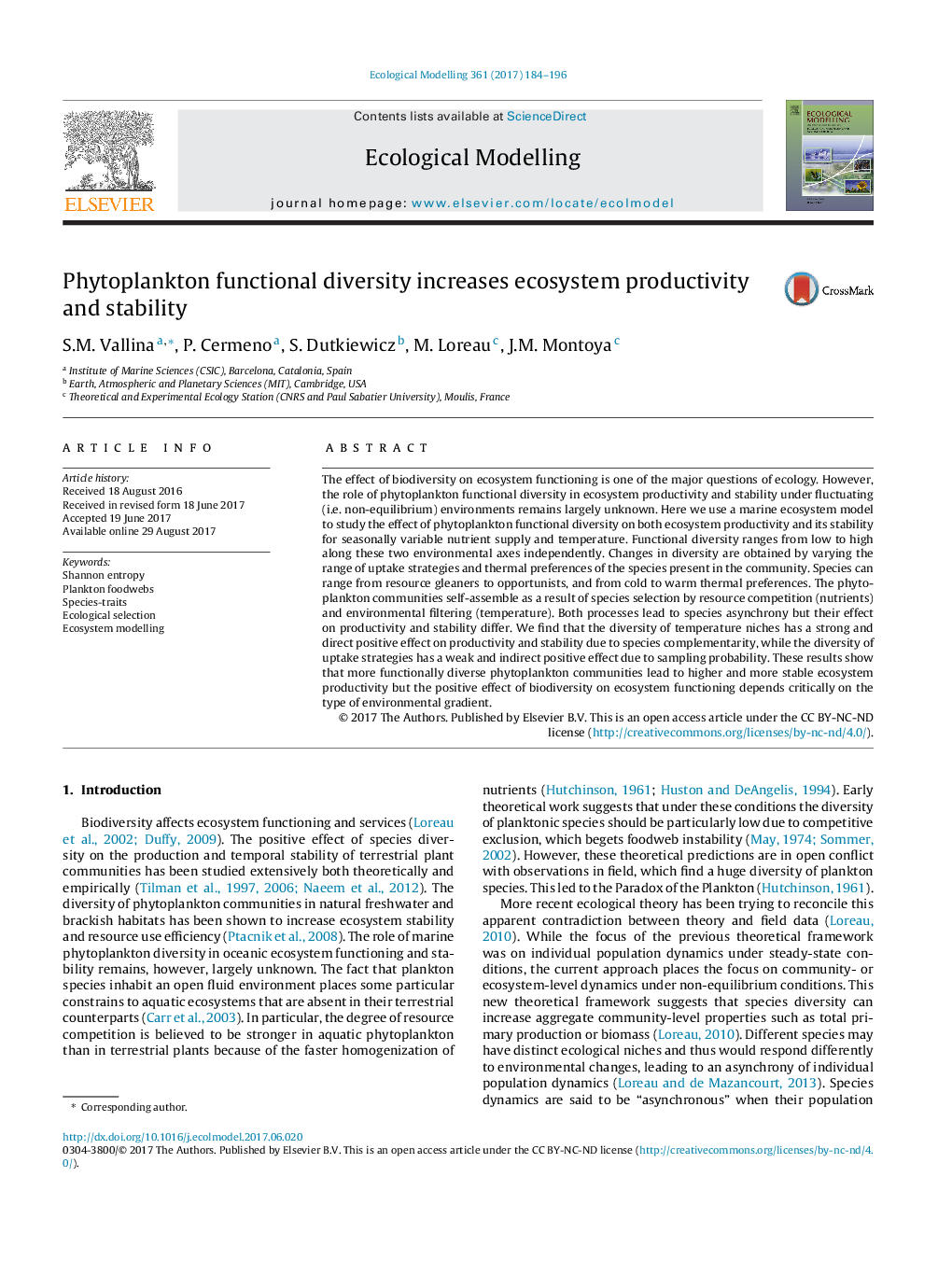| Article ID | Journal | Published Year | Pages | File Type |
|---|---|---|---|---|
| 5742005 | Ecological Modelling | 2017 | 13 Pages |
â¢We use an ecosystem process model to explore the potential effects of biodiversity on ecosystem functioning for marine phytoplankton.â¢Multiple phytoplankton species, representing differing degrees of functional diversity, are defined by their species-traits with respect to two environmental niche gradients: nutrient concentration and ocean temperature.â¢The resulting predictions are that (1) functional diversity through temperature niches strongly promotes productivity and stability due to species complementarity via environmental filtering; (2) functional diversity of competitive abilities has a weaker effect on ecosystem function due to sampling probability via resource competition.â¢Conceptually, this study calls attention to an important distinction between functional diversity that creates distinct niches with respect to climatic variables (temperature), versus diversity that creates differences within shared niches with respect to abiotic variables (resources).
The effect of biodiversity on ecosystem functioning is one of the major questions of ecology. However, the role of phytoplankton functional diversity in ecosystem productivity and stability under fluctuating (i.e. non-equilibrium) environments remains largely unknown. Here we use a marine ecosystem model to study the effect of phytoplankton functional diversity on both ecosystem productivity and its stability for seasonally variable nutrient supply and temperature. Functional diversity ranges from low to high along these two environmental axes independently. Changes in diversity are obtained by varying the range of uptake strategies and thermal preferences of the species present in the community. Species can range from resource gleaners to opportunists, and from cold to warm thermal preferences. The phytoplankton communities self-assemble as a result of species selection by resource competition (nutrients) and environmental filtering (temperature). Both processes lead to species asynchrony but their effect on productivity and stability differ. We find that the diversity of temperature niches has a strong and direct positive effect on productivity and stability due to species complementarity, while the diversity of uptake strategies has a weak and indirect positive effect due to sampling probability. These results show that more functionally diverse phytoplankton communities lead to higher and more stable ecosystem productivity but the positive effect of biodiversity on ecosystem functioning depends critically on the type of environmental gradient.
